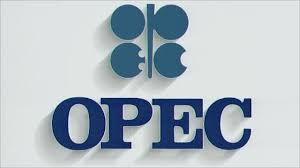It’s crunch time for OPEC as oil prices rise

Oil prices have surged and a potential supply crunch looms. Will OPEC respond?
Members of the oil cartel are meeting Friday in Vienna to consider a potential production increase that would please its customers and help bring down prices.
The summit promises to be a tense affair. Saudi Arabia has pushed for the cartel and its partners, such as Russia, to increase supply by around 1 million barrels per day, but Iran has resisted major changes.
Nervous investors pushed US crude futures up 1.3% to around $ 66.30 per barrel on Friday.
Oil prices have spiked by as much as 20% this year, in part because OPEC and its allies have produced even less than was foreseen under a 2016 agreement that was supposed to reduce supply by 1.8 million barrels per day.
The price spike has caused pain for big energy consumers such as India. American drivers are paying more for gas, too.
Related: Shale exec says US will be the world’s biggest oil producer by the fall
OPEC must still work out details of how any production increase would be carried out. The details are tricky because some countries — such as Venezuela — can’t pump more.
“Bottom line is, they are going to add [production] volume,” Fereidun Fesharaki, chairman of oil and gas consulting firm FGE, said on Thursday. But the specifics still needed to be negotiated, he said.
Fesharaki predicted that OPEC will announce a production increase of roughly 1 million barrels per day, but only 600,000 barrels or 700,000 barrels would materialize because some countries would struggle to meet their quotas.
Saudi Energy Minister Khalid Al-Falih said Thursday that he was optimistic a consensus can be reached.
“I am sure we will come to consensus, and we will look back at this meeting as being equally important to the one we had in late 2016 when we decided … to bring stability back to the market,” he said.
Related: Saudi Arabia says a deal can be done to boost oil supply
Al-Falih has argued that the cartel should act now in order to keep its customers happy. But other OPEC members are not so sure.
Iran has said that OPEC should stick to the terms of its original production cut agreement. The country, which is facing US sanctions that could hamper its production, has the power to veto any deal on Friday.
Fesharaki said he still expects an agreement to be reached.
“I think the Iranians will yield,” he said. “I don’t think anyone wants to walk away in a huff.”
Sticking more exactly to the 2016 agreement would mean an increase in supply, but it would be less than Saudi Arabia says the market needs.






